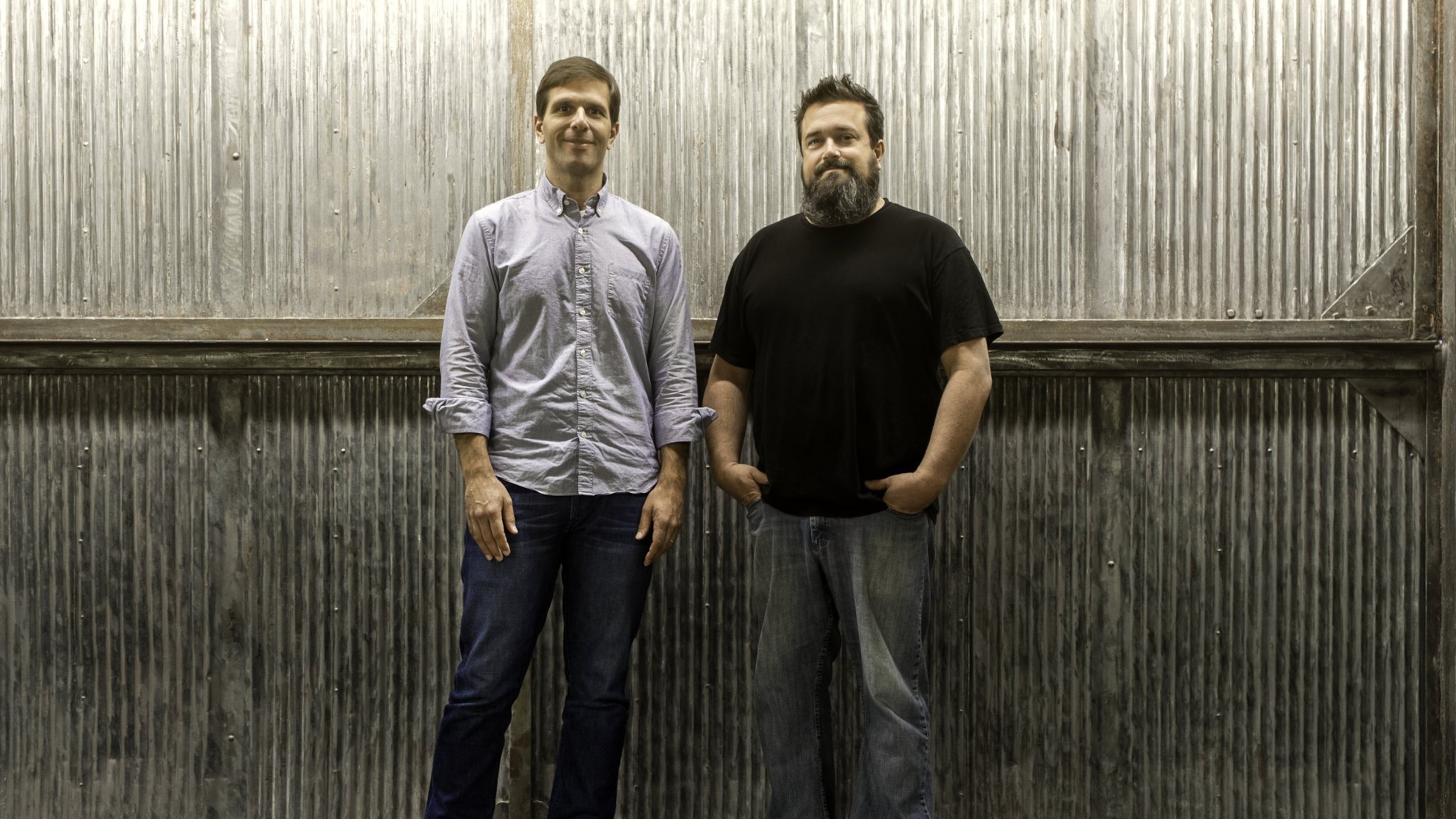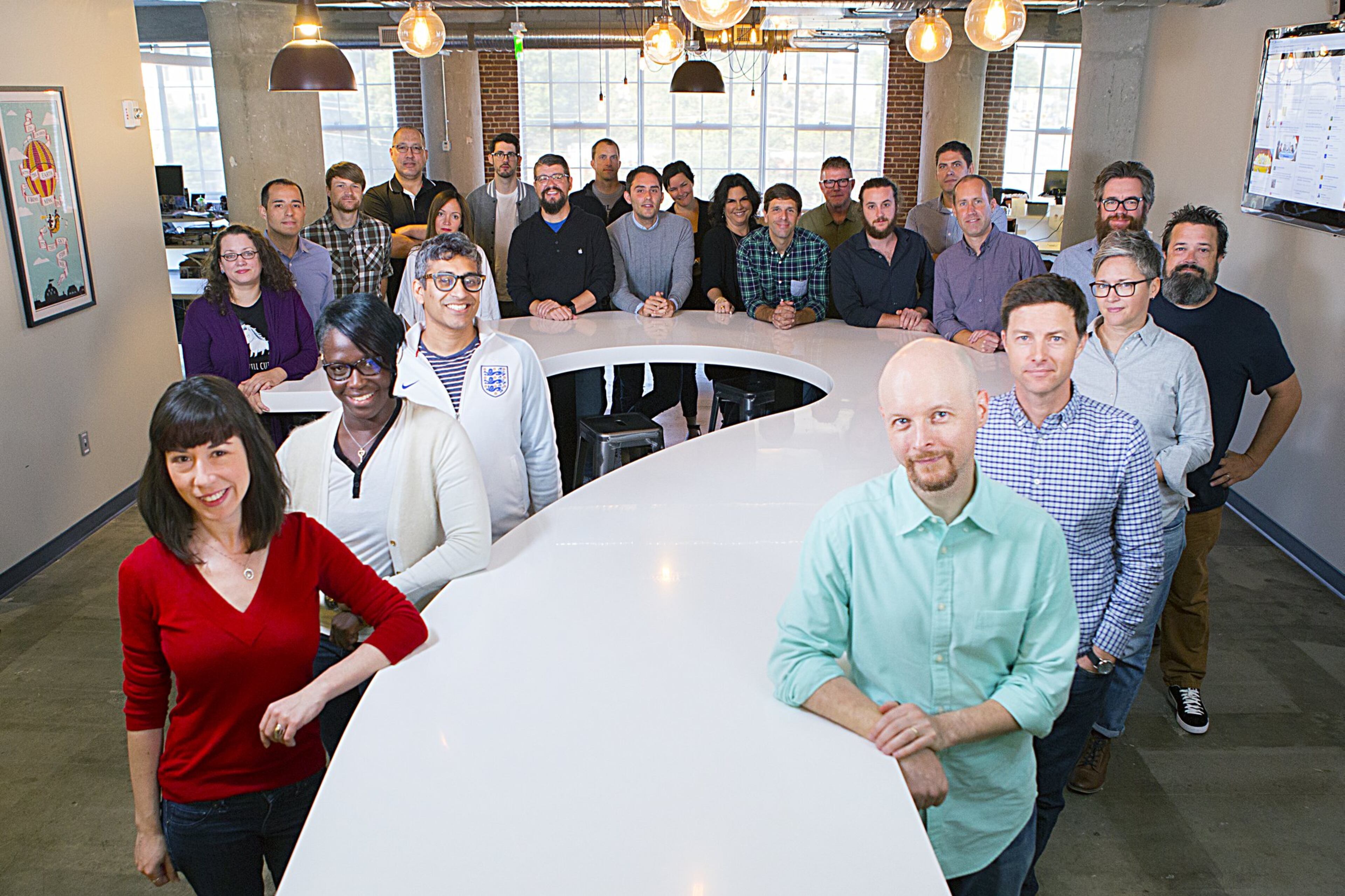$15 million infusion to expand How Stuff Works’ podcast programming

The podcast hosts of How Stuff Works speak in friendly, conversational tones, but their voices carry surprisingly far in their efforts to educate and entertain.
Over the past decade, the audio shows of the Atlanta-based media company have quietly amassed a listenership more comparable to television viewership than the perception of podcasts as a narrow niche of “radio on the internet.”
“We’ve had nearly a billion downloads, nearly a third to a half of that in the last 12 months,” said Jason Hoch, How Stuff Works’ head of new initiatives. “A lot of people don’t know we’re the No. 1 for-profit podcast brand in the world.”
With a recent, multimillion dollar infusion, How Stuff Works is now significantly boosting its signal by developing more programs and adding new voices.
In September How Stuff Works announced that it received $15 million in capital, led by The Raine Group merchant bank.
“We used to be a website that also did podcasts, now we’re a podcast company,” said Jonathan Strickland, host of TechStuff, an accessible, long-running show on technology.
In addition to expanding its headquarters at Ponce City Market, adding to its Los Angeles studio and possibly starting a studio in New York, company president Conal Byrne said the company plans to build up its roster. “The top five podcast networks in the world have 30 or more shows they’re actively producing,” Byrne said. “We have 14 and are still the second or third biggest. So, if we did 30 shows, could we double our downloads? I believe we can.”

The company’s new slate will include short-form podcasts such as “TechStuff Daily” as well as new genres of shows such as comedy and True Crime. Where one of its oldest shows, “Stuff You Missed in History Class,” takes a breezy but rigorously factual treatment of a topic, newcomer “Ridiculous History” is more jokey and prone to irreverent tangents.
Some longtime hosts are getting new shows. On “Movie Crush,” “Stuff You Should Know’s” Chuck Bryant uses a famous guest’s favorite movie as a springboard for discussion. “But the movie is just the ice breaker,” said Byrne. “Roman Mars of ‘99 Percent Invisible’ did an episode about seeing ‘Jaws’ 19 times, and they went into a conversation about seeing it as a kid and how it changes you.”
How Stuff Works is also seeking partners from outside the company. “The Daily Zeitgeist” is a comedic but informative news show posting every weekday from Jack O’Brien of the humor website Cracked.com. On the upcoming “Omnibus,” musician John Roderick and “Jeopardy!” champion Ken Jennings take deep dives into obscure but intriguing subjects.
In early 2018, the company will offer its first True Crime podcast, following “Serial’s” modus operandi. Teaming with Tenderfoot TV and “Up and Vanished” host Payne Lindsey, “Atlanta Monster” will investigate the Wayne Williams and Atlanta child murders case.

The company was founded in 1998 by North Carolina State University professor Marshall Brain and over the years has passed from multiple owners. The name “How Stuff Works” was originally quite literal, as the education-based company emphasized blog posts that detailed the nuts and bolts of familiar machine processes and other topics.
In the late 2000s How Stuff Works ventured into the then-new realm of podcasting. Its shows quickly established a house style of thoroughly researched topics presented like a cheerful chat, not a dry classroom lecture.
For its still-running flagship show, “Stuff You Should Know,” hosts Bryant and Josh Clark review general interest topics as diverse as making cheese, nude beaches and the D.B. Cooper skyjacking.
Byrne recalls that, in its second year, “Stuff You Should Know” received two emails that indicated the medium’s power to connect to people.
“One was from a group of soldiers in Iraq, eight or nine of them. They were all in ‘Stuff You Should Know’ T-shirts and thanking us for making life more bearable,” he said. “Days later, we received a note from a mother writing because the podcast made her autistic son feel less alone at school. We realized that this is a whole new realm for us. You don’t get fan emails for text reference articles. This is a very intimate, accessible, personal type of content.”
Having hosted almost 900 episodes following technological trends, Strickland has observations about the format’s escalating appeal. “A lot of people point to National Public Radio, which really broke podcasts open,” he said. NPR began launching podcast versions of its radio shows more than a decade ago, and to date continues to be the most popular network.
“It’s partly technological, as we’re seeing new capabilities built into entertainment systems,” Strickland continued. Every new generation of smart phones, smarter cars and home speakers give podcasts new ways to find audiences.
“And some high-profile shows like ‘Serial’ and ‘S-Town’ gained mainstream attention,” Strickland said. “We always had dedicated audience, but now when I tell people I have a podcast, they’ll ask ‘What’s it about?’ and not ‘What does “podcast” mean?’”
With plans to add approximately two new shows a month for about a year, Hoch compared How Stuff Works’ output to Netflix’s ability to introduce new shows that tap the cultural conversation. “A Netflix viewer will say something like, ‘There’s this show ‘Stranger Things’ that I didn’t know I wanted, and now I can’t live without it.’ That’s what we want.”
But he doesn’t want to neglect the company’s established shows either and points to how “Stuff You Should Know” aired its 1,000th episode earlier this fall. “That’s a huge milestone for our industry,” said Hoch. “I feel like it’s something Atlanta should be proud of.”
Successful podcasts like How Stuff Works’ longest-lasting shows can attract mass audiences from all corners of the world, but still feel as personal as having someone whisper in your ear.
##

